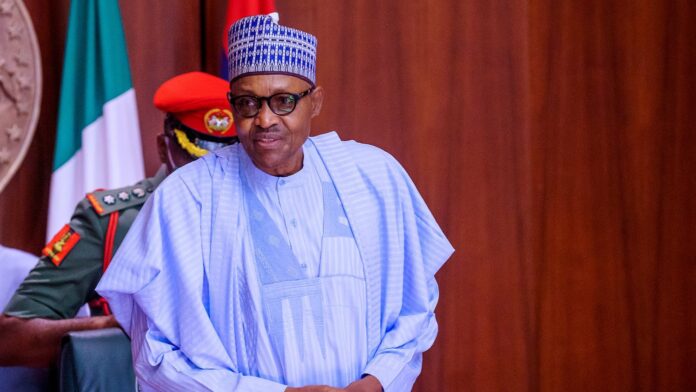President Muhammadu Buhari has directed the Central Bank of Nigeria (CBN) not to provide foreign exchange for the importation of food items.
Buhari spoke on Tuesday at the fifth regular meeting with the presidential economic advisory council that held at the statehouse in Abuja.
This is the third time that the president would issue the directive; first in August 2019 and again in September 2020.
A statement released by Garba Shehu, the president’s senior special assistant on media and publicity, quoted Buhari as saying his administration will tackle food inflation in 2021.
According to the National Bureau of Statistics, food inflation stood at 18.30 percent in November; a sign of increasing food prices in the country.
“Already, about seven states are producing all the rice we need. We must eat what we produce,” Buhari said.
“Going back to the land is the way out. We depend on petrol at the expense of agriculture. Now the oil industry is in turmoil.
“We are being squeezed to produce at 1.5 million barrels a day as against a capacity to produce 2.3 million. At the same time, the technical cost of our production per barrel is high, compared to the Middle East production
“We will continue to encourage our people to go back to the land. Our elite is indoctrinated in the idea that we are rich in oil, leaving the land for the city for oil riches.
“We are back to the land now. We must not lose the opportunity to make life easier for our people. Imagine what would have happened if we didn’t encourage agriculture and closed the borders. We would have been in trouble.”
Buhari commended the successes his administration has recorded in diversifying the economy to reduce over-reliance on crude oil.
The meeting reviewed the global and domestic economy in 2020 and agreed on a number of measures to improve the nation’s economy in 2021.
In specific terms, it noted that the country’s economic growth continues to be constrained by obvious challenges including infrastructural deficiencies and limited resources for government financing.
It emphasized the need to make the private sector of the economy the primary source of investment, rather than government.
The meeting reviewed the progress made with structural reforms in response to the economic crises, including the institution of the Economic Sustainability Plan and the changes in electricity tariff and fuel pricing regime.
It also reviewed the partial re-opening of the land borders, the movement towards the unification of exchange rates and budgetary reforms through Finance Bill 2020 and 2021.
It agreed that to prepare the country for the challenges ahead, it was imperative to ensure macro-economic stability, create certainty and re-build investor confidence in the economy to harness investment potentials from domestic and international sources.


